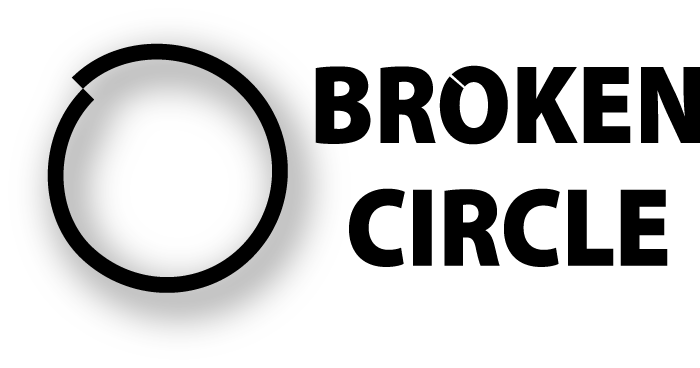From “Nietzsche” to “Marx” – from naive Anarchism to utopian Communism
by Lukas Meisner
Since puberty, I perceived the world as stasis, as fixed rigidity, as eternal return – the laws of the world carved in stone. This is a true feeling. The world is repeating the same old song (wrong) of domination and structural violence, of identity politics against the other and of the eradication of the radical, of constructed hatred and of the banality of evil called opportunism. Consequentially, I felt the need to set free, to break out, to negate, to liberate, to escape, to start breathing. This need is true. But it is true like a paling echo from passed, less troubled times. Meanwhile, I experience less stasis than an eternal state of exception, of crisis, of collapse – a constant smashing of the most valuable, most precious, and irreplaceable. Perhaps, this can be described as a switch from a naively anarchist to a communist sensitivity. Perhaps, with this switch, the dangerous illusion of absolute freedom, of pure autarky, of complete sovereignty was uncovered as a raw but in the last instance mad death drive away from the concrete into the abstract realms of heaven, nothingness, creatio ex nihilo – a death drive, in fact, modeled after the undead labour of capital. For sure, this move from the illusion of absolute “freedom from” (everyone) to the real need for a “freedom to” (unalienated social relations) was one from morals to politics. The result was to concentrate less on how the stable, the normal, the mediocre are secured against an emancipation from them than on how precarisation, destabilisation, anomisation are coerced by materialised ideology's set of mobile structural imperatives as a kind of inversed emancipation. Hence, ever since the switch from a naively anarchist to a communist sensitivity, the iconoclastic Nietzsche was of no great help no longer. In a sense, the sobriety of a still utopian Marx was required instead. At this point, the dissolution of “everything into air” turned from being the therapy to being the core of the disease also theoretically. I found in this disease the “creative destruction” (Schumpeter) of capital's “means of destruction” (Marcuse). The problem was no longer metaphysics and its eternalisation of the unbearable but the eternalisation of the unbearable undertaken by capital within the very physical realm of the this-worldy persecution of the transcendent, the not-yet, and the genuine. To take a famous example: the death of god was no longer a reason for joy since capitalism had to be understood less as the hypocritical rule of a church than as the cynical engine of nihilism and the murder of any and all value via its valorisation: hypocrisy, in short, has been replaced by cynicsm.
Of course,
some may say my move was from progressivism to conservatism, from
revolution to preservation, from attack to defense. But this
political dualism of left and right, right and wrong, good and bad
would miss the most important. Namely that the two ways –
“Nietzsche” and “Marx” as the respective coping strategy –
are not oppositions but following from one and the same root: they
just focus on another aspect within the same problem. Whether
yesterday or today, I start from the same goal, and goals are the
only politically legitimate starting points within a world bordering
on apocalypse. Whether yesterday or today, I start from the hope for,
the dream of, the need for an unalienated life of beings allowed to
be themselves and as such affirmed, confirmed, enabled. The
individual goal is to be wanted, embraced, and loved for being
oneself; the universalisation of this kind of individualism is
communism. The consequence of such a completely positive goal is to
criticise, to negate, and to hate what makes it impossible; all that
which claims there would be no alternative; and which therefore
necessitates dystopia. From this follows that the critique of capitalism is not any kind of affirmation of crisis but on the opposite the very hope for a final end to the infinity of the economy of crises we know as capitalism. The difference between the “Nietzschean”
and the “Marxian” stance, thus, is one of experience, not of
goals – not of political orientation, not of personality, not of
evaluation of the world as it is, but of how one perceives it. I, for my part, intended both stances in a
critical manner. But since I experience the world – due to more
experiences than formerly – meanwhile less as the monolithic Same
over and over again than as the permanent Smashing of any persistence
of value, I, again, changed.
I changed, yes: because I was forced to. But I changed not due to fetishising change but I changed towards a
more consequential relationship to what I always stood for. This is
not to say that out of a sudden, the old, its tradition, its
standstill are to be celebrated. On the opposite. I see, now, that
what is permanent precisely is destruction; that what returns
eternally is the fake-new (Benjamin); that primitive
accumulation is constant; that capital circulation is
about ever-refreshed innovation; that what is infinite is the
devastating bulldozer leveling any quality that could grow beyond
superficiality (that could grow if and only if it had its time). For
capitalism exactly means to feed destruction, sado-masochism,
suicide into the circle of exchange, value, and surplus. The sole
thing that has changed, therefore, is my amount of naivity. To be
clear: the degree of taking myself seriously against all odds
remained exactly the same. But experience shapes what sincerity
consists of. Perhaps, my development was due to my age. Whether of me
personally or of the epoch I live through is not yet decided. But if
a new new left still believes in something, it should take the
step from its nihilistically transgressive “Nietzscheanism” to
that of an anti-cynical, transcending “Marxism” – or from naive anarchism to
utopian communism.

